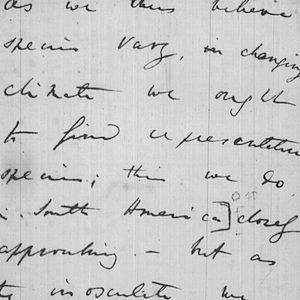-
-
Step-by-step course guide
-
What you will learn in this course
-
About the course: David Kinney & Simon DeDeo
-
Introducing the course Teaching Assistant
-
Join the discussion
-
-
-
Introduction to Humanities Analytics
-
-
-
-
Analyzing "Excellence" in the Humanities
-
-
-
-
-
-
Case Study: Capitalism & Democracy
-
Chapter 5 part 1 Overview
-
The Marriage of Capitalism & Democracy part 1
-
Test Your Knowledge part 1
-
Test Your Knowledge part 1: Explanations
-
Chapter 5 part 2 Overview
-
The Marriage of Capitalism & Democracy part 2
-
Test Your Knowledge part 2
-
Test Your Knowledge part 2: Explanations
-
Assignment: Case Study: Capitalism & Democracy
-
-
-
-
-
Measurement & Operationalization
-
-
-
A Philosophical Approach to Probability
-
-
-
Guest Lecture: Marco Buongiorno Nardelli
-
-
-
-
-
Guest Lecture: Nan Z. Da
-
-
-
Wrap-Up
-
What's Next
-
6.1 Guest Lecture: Ricard Jean So » Lecture Overview
The goal of this guest lecture
As with all guest lectures, the aim is to inspire you by providing exemplars of Humanities Analytics projects. You will learn how, in practice, cultural analytics scholars are able to measure the extent to which a narrative possesses certain features. You will learn this in the specific context of Richard Jean So's project examining COVID-19 narratives on Wattpad, an online fiction-writing platform. This example may prompt you to think about what other kinds of corpora could be analyzed using quantitative techniques in order to discover patterns with respect to their narrative features.
Key terms to keep in mind
Official retrospective culture Works that use traditional narrative media (e.g., novels or films) to reflect on and depict historical and contemporary events (e.g., a pandemic), and are produced mostly by professional artists (e.g., novelists, filmmmakers, etc.)
Mass user-generated culture Works that are mostly published via online media, and are typically produced by amateurs. Often the amount of such content produced far exceeds that of more traditional channels for cultural output, and tends towards genres like fan fiction, or fiction works that are set in the same narrative universes as more "official culture".
Textual Describing features of a written work that pertain primarily to the text of that work.
Narratological Describing features of a written work that pertain primarily to the narrative of that work (i.e., the way in which the piece tells a story).
Fabula Term from narrative theory referring to the content of a story. In the study presented in the lecture, So is specifically concerned with whether the fabula of a story has to do with COVID-19. He used a "Yes"-or-"No" binary variable to denote whether or not a story is "about" COVID-19. The variable took the value 'Yes' whenever the story contained sufficiently many words typically associated with COVID-19 stories, and 'No' whenever the story did not contain sufficiently many words typically associated with COVID-19 stories.
Sujet How a story is told to the reader. In the study presented in the lecture, So is concerned with whether the sujet of a story is such that it is told through a rich network of interconnected characters, or if the story is such that not all characters interact. This was measured by constructing a graph of interactions between characters in the story (i.e., a diagram in which connections between characters are represented as circles, and lines between those circles represent interactions between two characters), and determining whether, in that graph, every character is connected to every other character, i.e. is fully connected.
Indistinction Growing trend, identified by Arthi Vadde, wherein the borders between traditional and non-traditional writing genres, and even fiction and non-fiction, are increasingly blurred and sometimes collapse.
